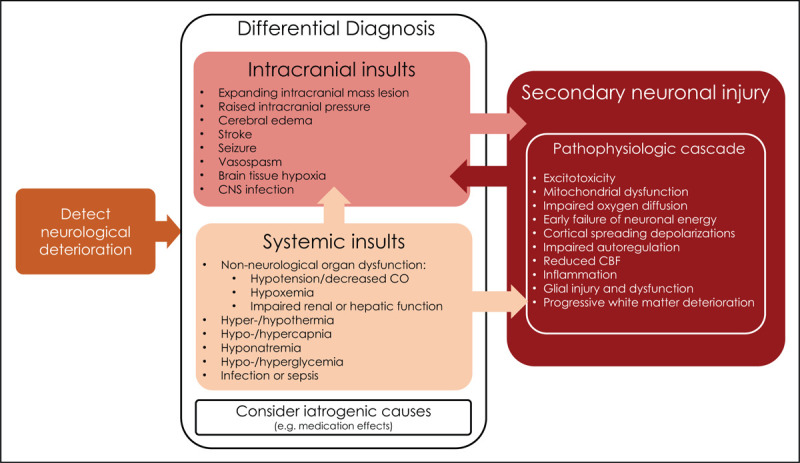FIGURE 1.

Neurological deterioration due to secondary insults on the brain [7▪▪,25,44,45]. Neurological deterioration may be due to intracranial, systemic or iatrogenic insults. Systemic and intracranial insults may drive secondary neuronal injury pathophysiologic processes occurring at a tissue, cellular and molecular level. The pathophysiology of secondary neuronal injury is complex and can involve several secondary pathological cascades that contribute to neuronal injury. Ongoing secondary neuronal injury processes may contribute to further intracranial events. Systemic insults may further add to the severity of the intracranial insults, for example hypoxemic event complicating ongoing cerebral oedema and aggravate the ongoing pathophysiologic cascade, for example systemic hypotension contributing to reduced CBF in the setting of impaired autoregulation. CBF, cerebral blood flow; CNS, central nervous system; CO, cardiac output.
